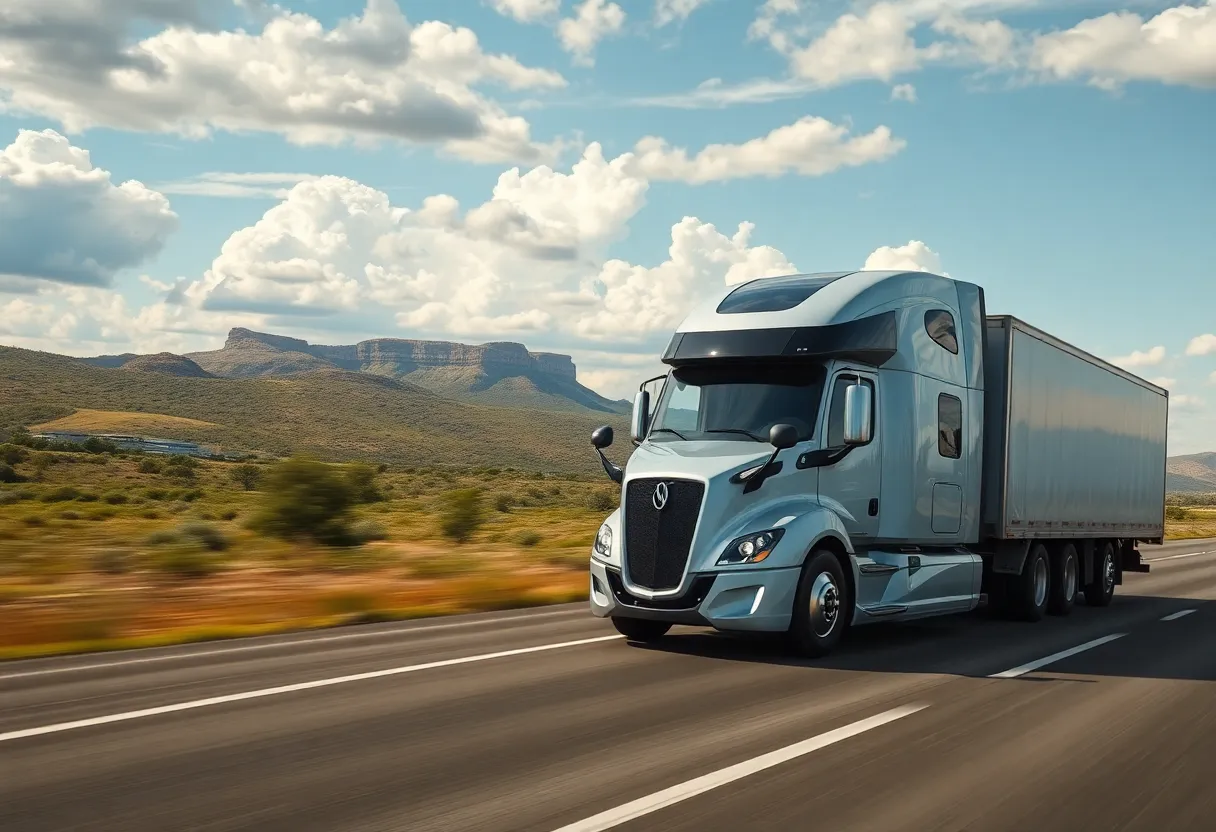News Summary
Aurora, an autonomous trucking company, has launched the first commercial service for driverless semi-trucks on public roads in the U.S. The service operates long-haul routes between Dallas and Houston and uses advanced technology to enhance safety during transit. With plans for future expansion, Aurora aims to address driver shortages and reduce operational costs in the trucking industry, despite facing regulatory challenges. The Texas Trucking Association supports this initiative, viewing it as a significant step towards improved supply chain efficiency.
Austin, Texas – Aurora, an autonomous trucking company, has officially launched the first commercial service for driverless semi-trucks on public roads in the United States. This newly initiated service operates long-haul routes specifically between Dallas and Houston.
The driverless trucks are outfitted with advanced sensors and onboard computers that allow them to detect objects up to the length of four football fields, significantly enhancing safety during transit. Before its operational kick-off, Aurora’s technology underwent extensive testing, completing over 1,200 miles without human intervention across a four-year period of practice hauls.
During the inaugural run, the company’s CEO experienced riding in the back seat of the self-driving truck, which he described as a momentous occasion. The launch aligns with Aurora’s partnership with notable industry leaders such as Uber Freight and Hirschbach Motor Lines, both of which previously conducted test runs involving safety drivers.
The route between Dallas and Houston spans approximately 200 miles, and the autonomous trucks can maintain speeds ranging from 25 to 75 miles per hour. Aurora envisions expanding its fleet and services to include additional routes to El Paso, Texas, and Phoenix, Arizona, by the year 2025.
Aurora’s introduction of commercial driverless trucking services seeks to address several persistent issues plaguing the trucking industry, including driver shortages and ever-growing operational costs. The company has facilitated more than 10,000 customer loads, covering 3 million autonomous miles during supervised pilot hauls, with a primary focus on Texas.
The technological advancements of Aurora’s trucks enable them to perform complex driving tasks, such as predicting the actions of red light runners and detecting pedestrians from considerable distances. Aurora is strategically collaborating with major players in the transportation and automotive sectors, including Continental and Volvo.
Despite the promising launch, the autonomous trucking sector continues to grapple with various challenges, particularly concerning regulatory hurdles and public skepticism surrounding safety. Lawmakers have been in discussions about creating new regulatory frameworks governing autonomous trucks since 2024, amid ongoing public debates shaped largely by incidents involving other self-driving entities like Tesla and Cruise.
The Texas Trucking Association has expressed support for Aurora’s launch, viewing it as a significant step toward creating more efficient and safer supply chain operations. Aurora’s approach includes a unique economic model whereby the company will own, maintain, and insure its fleet, allowing customers simplicity in their logistics processes.
Aurora’s vision extends to a future where clients can directly purchase their autonomous trucks, with plans for this service to commence in 2027. This expansion reflects the company’s commitment to pushing the boundaries of automated transportation while striving to meet the increasing demands of the industry.
With Aurora’s debut, the phase of driverless trucking has entered a new era, paving the way for transformative changes within the logistics and transportation sectors. As the company continues to navigate the challenges, public and regulatory reactions will play a pivotal role in shaping the future of autonomous vehicles.
Deeper Dive: News & Info About This Topic
HERE Resources
Aurora Innovation Launches Driverless Trucking Service in Dallas
Additional Resources
- The Verge
- Wikipedia: Autonomous Vehicle
- Axios
- Google Search: Autonomous Trucks
- TechCrunch
- Google Scholar: Autonomous Trucking
- Houston Chronicle
- Encyclopedia Britannica: Autonomous Vehicles
- ABC13
- Google News: Autonomous Vehicles News








